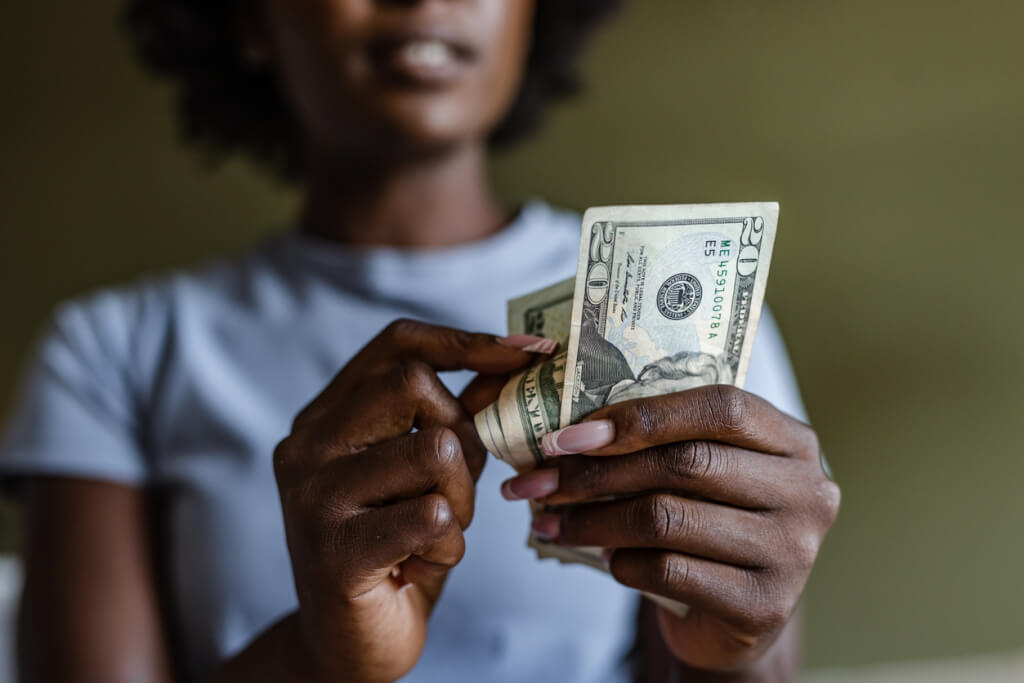New York yellow taxi industry is on the brink of survival: 90% of the industry has stopped
'08.07.2020'
Vita Popova
Today, yellow taxi drivers in New York are delivering food to the poor to earn a little money. They risk their health, while not receiving part of the pre-crisis profits. About how the coronavirus pandemic affected the industry, the newspaper writes. CBS.
What is the taxi industry going through today
Today, the streets of New York are mostly empty: almost 90% of the taxi business has stopped. This is one of the reasons the city has launched a program under which taxi drivers are paid to deliver food to low-income residents.
Mouhamadou Aliyu, a yellow taxi driver with many years of experience, gets up before dawn to take part in this program. He knows he is risking his own health, but he has no choice. “This is my home, and yellow taxis are what I do,” he explained. “The pandemic is going on right now. Our people are suffering. The city is calling us. We accept the challenge. "
For one route, which involves about six deliveries, drivers earn $ 53. But before you start working, you need to queue for hours to fully load the car. After that, the delivery begins and taxi drivers are forced to carry boxes of food to residential complexes, and then wait for the next arrival. "It's very hard. It is very difficult, ”said Aliya.
On the subject: Tesla became the first electric car to operate in New York's yellow cab
If you manage to complete two routes in one working day, you can earn $ 106. But this amount is very far from necessary to pay monthly expenses.
“But we still have hope,” said Aliyah to Sunday Morning special sponsor Ted Koppel. - We're New Yorkers. We are not giving up! "
“I came here with nothing”
In 1994, as a young immigrant from West Africa, Aliya first saw Manhattan. “I came here with nothing, nothing at all. It was my dream. As a yellow taxi driver, holding a medallion in your hands is like being on top of your game. This is where I want to be. This is the American dream. "
In 2003, he became a United States citizen. By 2004, Aliya learned that working as an ordinary taxi driver did not make you rich. It turned out that in order to earn money, you need to own a taxi yourself. And to own it, you need special rights - a medallion. The latter needs to be bought. Then it will be possible to either work on the car yourself, or rent out the medallion - that is, the license for driving a yellow taxi - for rent.
The city paid for the advertising of these medallions, thereby guaranteeing a deal as such that carries no risks. Selling medallions at auctions, New York earned billions of dollars. But demand exceeded supply, and the price of medallions began to rise.
Since Aliyu only had $ 7000 out of the required $ 20 to bet on the locket, he took out a loan from the bank. And although life at that time was also not easy, it was “magnificent,” he says.
About a year later, Aliya's medallion went up in price by more than $ 100, and, what is remarkable, its value continued to rise. “I was lucky to be able to buy a house here in the Bronx, a three-unit house,” he said. - So everything was fine. But the value of the medallion grew. In 2013, the city put up for auction a medallion for 1 million 350 thousand dollars, ”said the yellow taxi driver.
Seven years ago - theoretically, on paper - Aliya was a millionaire. “The only reason it (the license - Ed.) Was worth more than a million dollars was because there was another immigrant who could be used to pay that amount,” New York Times reporter Brian Rosenthal said. Rosenthal). This man "fell into the loan trap for the rest of his life."
Exposing a medallion scam
Rosenthal won a Pulitzer Prize for his series of exposing the taxi medallion scam. As he revealed in the Times documentary series The Weekly, these medallions were made for a living, but not by the taxi drivers themselves. “There was a city that sold medallions, brokers who collected commissions, and bankers who wrote out loans and sold some of them for profit,” he explained. We found that the value of the medallion went from $ 200 to over a million dollars, when the revenue it was supposed to generate did not change at all. In the end, you realize that this was no coincidence. Many insiders knew it was all a house of cards. "
Last summer, the New York City Council held a hearing on the so-called taxi driver crisis. Muhammadu Aliyu was one of the witnesses. “Every day, every hour, I think about taking my own life,” he told city officials. - I'm thinking of suicide. The only thing that stops me is my four children. If I do this, what will happen to them? Today I must be a millionaire and I am proud of it. And you guys are trying to take this away from me. This is unacceptable. I urge you, I beg you! You are welcome! Have mercy on us. Help us".
On the subject: 'Opportunity to leave the comfort zone': Belarusian spoke about work at Uber and life in New York
Koppel noted that Aliya is quite clear about his status as a millionaire, but that he is unlikely to ever really become one. “I mean, he deserves it. He works very hard. I have met hundreds of such taxi drivers and they all work very hard, ”Koppel said.
Many of the drivers are convinced that companies such as Lyft and Uber have ruined their business. But Rosenthal is convinced: even without their presence on the market, the “medallion bubble” should have burst.
However, there is also a small ray of hope for an improvement in the situation. The New York State Attorney General is preparing to sue more than $ 800 million for medallion owners who mislead people. This may take years, and even this amount will not be able to truly help yellow taxi drivers.
In addition to the crisis caused by the medallion scam, the taxi business was knocked down by the COVID-19 pandemic. Since March, more than 50 drivers have died from the virus. Many of the taxi drivers stay at home these days - the rates at which they work are simply not worth the health risk.
“I lost my sleep. At night we chat in a WhatsApp group, we are so excited. If nothing is done when this pandemic ends, the yellow taxi industry will end, ”Aliya summed up.
It is worth mentioning at last that today the yellow taxi has become the same symbol of New York as skyscrapers or the Statue of Liberty. Once upon a time for migrants, who make up 90% of taxi drivers, this was a welcome job. The license was worth a million dollars, but no one doubted that this was a profitable investment. The medallion could not only be sold or leased, but even inherited. And the drivers told stories about their lives, about the lives of passengers, creating an oral chronicle of the metropolis.
But with the appearance of such companies as Uber and Lyft about five years ago in the New York transportation market, yellow taxis have serious competitors that negatively affect earnings, depriving them of their livelihoods.
And with the health crisis, the situation has only worsened. In addition, after a few years in New York there will also be a fleet of "flying taxis"that German startup Lilium is already working on. At the same time, the developer promises that not only the rich can travel on a futuristic plane.







